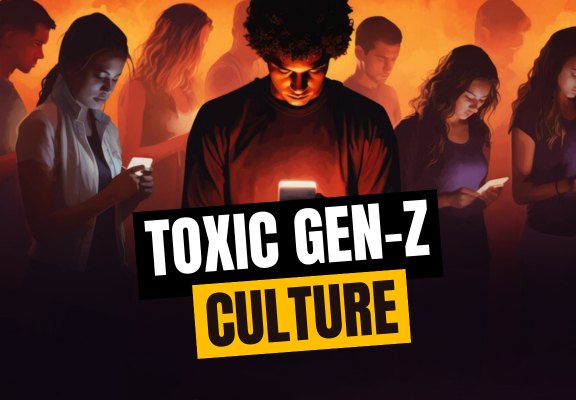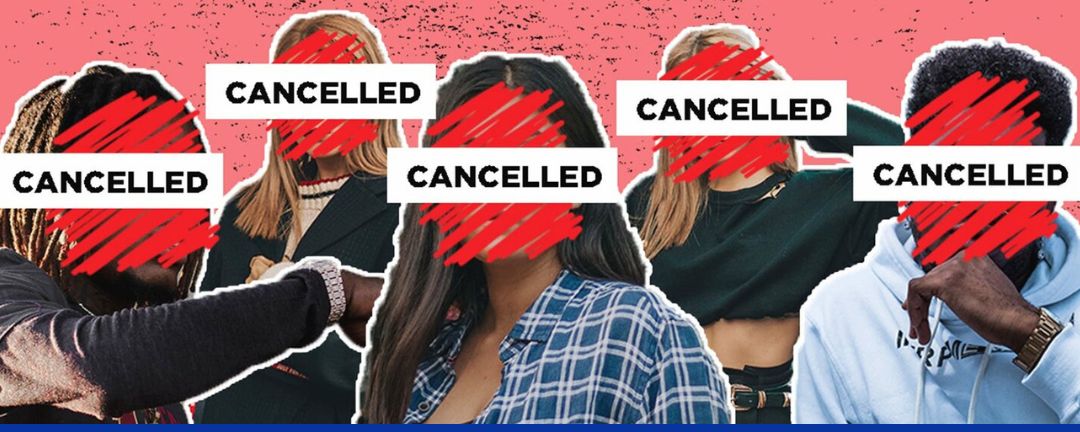Unveiling Toxic Gen-Z Cultures and the influence of Social Media


In the ever-evolving landscape of social media and digital connectivity, Generation Z finds itself at the forefront of a cultural revolution. Having grown up in a technologically advanced world, Gen-Zers have quickly transitioned to the digital era, utilizing platforms such as Instagram, TikTok, and Twitter for self-expression, peer connection, and identity formation. However, beneath the surface of this digital revolution lies a complex web of toxic cultures that can have profound impacts on the mental health and well-being of young individuals. In this blog, we delve into the phenomenon of toxic Gen-Z cultures, exploring their origins, manifestations, and potential solutions.
Gen-Zers are digital natives, growing up in a world where social media plays an integral role in shaping social interactions and self-perception. While social media platforms offer unprecedented opportunities for self-expression and community-building, they also serve as breeding grounds for toxic behaviors and ideologies. The relentless pursuit of likes, followers, and validation has created a hyper-competitive environment where individuals are constantly comparing themselves to others and seeking external validation for their worth.
Social media platforms often showcase curated, idealized versions of people’s lives, leading to feelings of inadequacy and low self-esteem among Gen-Zers. The pressure to measure up to unrealistic standards of beauty, success, and happiness can fuel anxiety and depression.
Originally designed to hold individuals and institutions accountable for problematic behavior, cancel culture has evolved into a phenomenon that swiftly condemns and ostracizes people for minor transgressions or differences in opinion. This zero-tolerance approach stifles open dialogue and promotes a climate of fear and censorship.
The anonymity and distance afforded by social media platforms can embolden individuals to engage in cyberbullying, spreading hate speech, harassment, and misinformation with impunity. Cyberbullying can have devastating effects on the mental health and well-being of its victims, leading to depression, anxiety, and even suicide.
The rise of influencers and content creators has created a culture of materialism, consumerism, and superficiality. Many Gen-Zers aspire to attain the glamorous lifestyles depicted by influencers, often at the expense of their authenticity and values.

By educating Gen-Zers about the potential pitfalls of social media and teaching them critical thinking skills, you can empower them to navigate online spaces more safely and responsibly. By fostering media literacy, young individuals can learn to distinguish between authentic content and harmful propaganda, as well as develop strategies for managing their online presence and interactions.
Encouraging a culture of kindness, empathy, and inclusivity can help counteract the negative influences of toxic Gen-Z cultures. By celebrating diversity and championing positive role models, we can create online communities that uplift and support one another rather than tear each other down.
Providing accessible and stigma-free mental health resources is crucial for addressing the psychological toll of toxic online cultures. By destigmatizing mental illness and promoting self-care practices, we can empower Gen-Zers to prioritize their well-being and seek help when needed.
Holding social media platforms accountable for their role in perpetuating toxic cultures is essential for creating a safer online environment. Implementing stricter moderation policies, combating cyberbullying, and promoting digital wellness features can mitigate the harmful effects of online toxicity.

Toxic Gen-Z cultures represent a significant challenge in today’s digital age, impacting the mental health and well-being of young individuals worldwide. By acknowledging the existence of these toxic behaviors and ideologies, we can work towards fostering a more positive and inclusive online environment for future generations. Through education, advocacy, and collective action, we can empower Gen-Zers to harness the transformative potential of social media while mitigating its negative consequences. Ultimately, by prioritizing empathy, authenticity, and mutual respect, we can build a digital world where everyone feels valued, supported, and empowered to be their true selves.